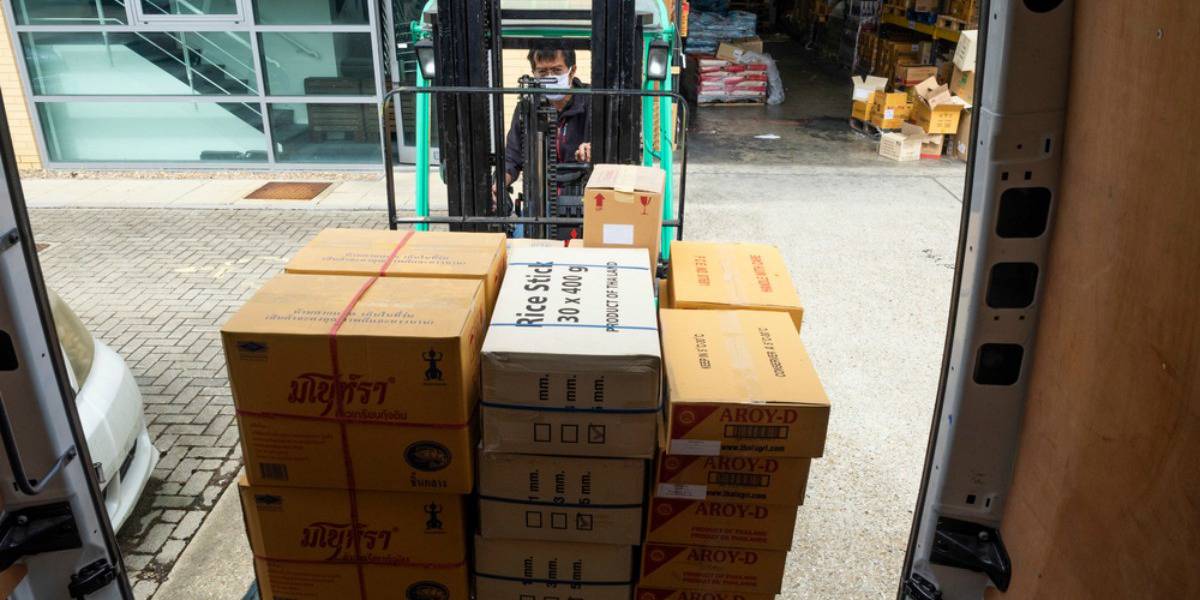18 months to 3 years for post-COVID-19 ‘new normal’ in global food industry - analysts
A ‘new normal’ post-COVID-19 for the global food industry will take 18 months to 3 years to evolve, say analysts at research and advisory firm DinarStandard.
“We are going with that key milestone, of a successfully developed vaccine, or herd immunity developing, in a year and a half, or around then,” said CEO and Managing Director Rafi-uddin Shikoh during a webinar on Thursday (May 14).
“A lot of people are asking what a post-COVID-19 ‘new normal’ will look like,” said Shikoh.
The global food industry has been significantly disrupted by the COVID-19 outbreak that will lead to shake-ups across the board, and across the world, with Muslim-majority countries equally impacted.
Global agriculture is worth over $8 trillion, around 10% of the global economy, and employs over 1 billion people. Prior to the pandemic, the industry was going through multiple challenges, but the crisis is prompting a re-evaluation of food production, the supply chain and consumer behavior, said DinarStandard, which is the parent company of Salaam Gateway.
The new normal may very well challenge previous modes of production and distribution, with the agriculture sector a major carbon emitter, at 23% of global emissions, while an estimated 33% to 50% of food is thrown away.
“Pre-COVID-19 there were 135 million people experiencing acute hunger, so there is this great injustice existing between those malnourished and so much food being wasted,” said Shikoh.
This is particularly apparent in the 57 member Organization of Islamic Cooperation (OIC) countries, where 64.5 million people suffer from acute hunger, while the main suppliers of halal products to the OIC are non-Muslim countries.
According to DinarStandard research, some of the most vulnerable countries in terms of food security are Muslim-majority: Yemen, Afghanistan and Sudan. Conversely, some of the most food secure but food import dependent are in the Gulf, particularly the United Arab Emirates and Saudi Arabia.
KEY SHIFTS
Four key shifts have become apparent globally, although they vary by country, noted Shikoh.
One of the biggest shifts has been growing consumer demand for healthy food to bolster immunity to the virus. “The consumption of healthy, fresh food to drive immunity versus processed food could be much higher as a post-COVID-19 new normal,” he said.
Demand for essential foods has also grown, and online grocery deliveries have boomed, feeding into cooking at home.
“Home cooking has grown, while on the other side, restaurants are suffering and take-outs are in the middle,” said Shikoh.
This is reflected in the stock price changes of leading agri-food companies, restaurants, grocery stores and food distributors in the USA, Switzerland, France, the UK and China, between December 3, 2019 and May 8, 2020. Food distribution companies were down 37.5%, farm products down 23.2%, agricultural inputs down 16.6%, while grocery stores were up 16.4% and packaged foods 0.1%, according to DinarStandard calculations.
Changes in stock performance of major players have also shown a decline in food products and food distribution.
In packaged foods, Beyond Meat, a U.S.-based company manufacturing plant-based artificial meat, was up 43%, and online store Ifresh surged 69%.
“Alternatives to animal protein consumption could jump in the post-COVID-19 new normal, with the meat supply chain having been disrupted, and consumers exposed to these options for the first time. There are indications this will continue,” said Dr. Mohamad Ali, Associate Partner, Food Sector at DinarStandard.
E-commerce is likely to retain similar levels to now, if not increase as part of the new consumer landscape post-COVID-19.
“There is a very clear indication for the industry that COVID-19 has accelerated trends that already existed,” said Shikoh.
This trend feeds into the rise in home cooking due to stay-at-home measures, which has changed consumer habits. “We see this trend continuing,” he said.
The restaurant business, whether fine or casual dining, may have to change its model completely in the ‘new normal’ of physical distancing by making technology central to operations that focus on deliveries rather than eating-in.
“Central to this will be cloud kitchen operations,” said Ali, referring to restaurants that use technologically advanced kitchens to prepare food for delivery through apps.
Major challenges in the global food industry are naturally expected, such as sourcing raw materials and an expected rise in automation in the food processing sector to lessen human involvement.
Blockchain traceability to heighten consumer trust may also be bolstered.
“Blockchain enabled trading could become a new normal, like mobile connectivity between farmers and buyers,” said Ali.
An increase in localization as well as regionalization in sourcing food is further expected, while governments are likely to play a much bigger role in ensuring food security and safety compared to the past.
“We are going to see government investments grow in this area, and a further sophistication of food security policies develop post-COVID-19,” said Shikoh.
(Reporting by Paul Cochrane; Editing my Emmy Abdul Alim [email protected])
© SalaamGateway.com 2020 All Rights Reserved
